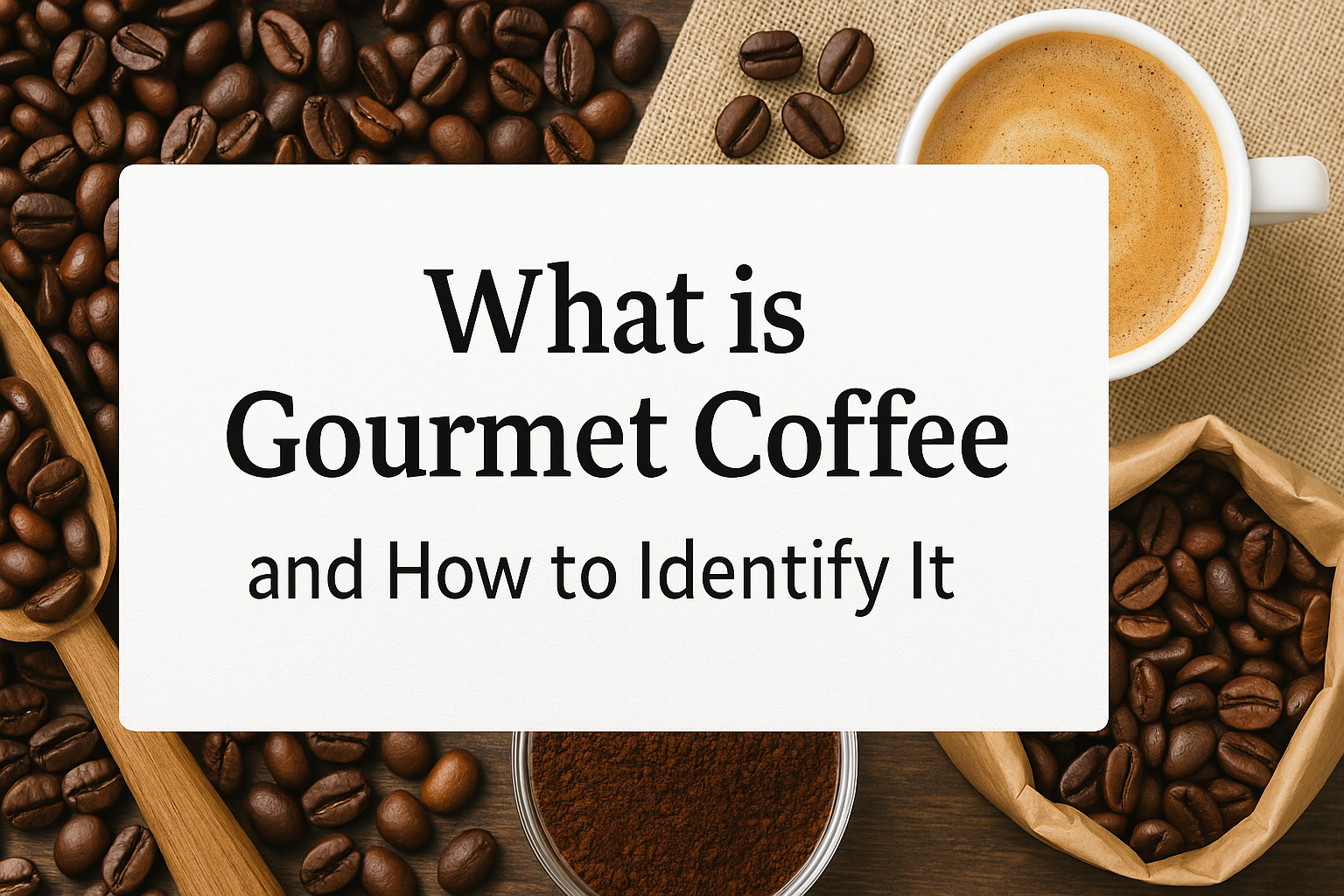Gourmet coffee is a term frequently used in cafés and specialty stores, but what exactly qualifies as “gourmet”? This article explores what defines gourmet coffee, how to identify it, and why it’s becoming increasingly popular among coffee enthusiasts.
What is Gourmet Coffee?
Gourmet coffee refers to high-quality coffee beans that are carefully sourced, processed, roasted, and brewed to maximize flavor and aroma. Unlike mass-produced commercial coffee, gourmet coffee emphasizes:
- Bean quality
- Origin specificity
- Unique flavor profiles
- Ethical and sustainable sourcing
The term is often used interchangeably with “specialty coffee”, though specialty coffee adheres to specific industry grading standards.
Key Characteristics of Gourmet Coffee
1. High-Quality Beans
- Typically made from 100% Arabica beans.
- Grown at higher altitudes, contributing to more complex flavors.
- Carefully harvested and processed to preserve quality.
2. Traceable Origins
Gourmet coffee often highlights its origin—including country, region, and even specific farms—allowing consumers to explore diverse flavor profiles linked to terroir (the environmental factors influencing crop growth).
3. Distinct Flavor Notes
Common flavor descriptors include:
- Fruity (berries, citrus)
- Floral (jasmine, rose)
- Nutty (almond, hazelnut)
- Chocolatey or caramelized tones
Unlike standard commercial coffee, which may taste generic or bitter, gourmet coffee offers a nuanced tasting experience.
4. Ethical Sourcing
Many gourmet coffee producers adhere to sustainable and fair-trade practices, ensuring:
- Fair wages for farmers.
- Environmentally responsible cultivation.
- Transparent supply chains.
5. Artisanal Roasting
Small-batch roasting ensures:
- Better control over flavor development.
- Freshness, as gourmet roasters often roast to order.
- Light to medium roasts to highlight origin characteristics.
How to Identify Gourmet Coffee
Check the Label
Look for:
- Origin information: country, region, farm.
- Roast date: fresher is better.
- Roast profile: light, medium, dark.
- Flavor notes: detailed descriptions indicate care in profiling.
Smell and Taste
- Aroma: Should be vibrant and distinct.
- Taste: Balanced acidity, sweetness, and complexity.
- Mouthfeel: Often smoother and less bitter than commercial blends.
Packaging
Gourmet coffee is typically sold in:
- Sealed bags with one-way valves to release gas without letting air in.
- Smaller quantities to preserve freshness.
Where to Buy Gourmet Coffee
- Specialty coffee roasters and cafés.
- Online retailers specializing in single-origin or micro-lot coffees.
- Subscription services offering curated gourmet coffee selections.
Brewing Gourmet Coffee at Home
To enjoy gourmet coffee to its fullest:
- Grind fresh: Use a burr grinder.
- Use filtered water: Enhances clarity.
- Control variables: Water temperature, brew time, and ratio.
- Experiment: Try different brewing methods like pour-over, AeroPress, or French press to highlight unique flavors.
Why Gourmet Coffee is Worth It
- Flavor complexity: Each cup is an exploration.
- Support for ethical practices: Ensures a more sustainable coffee industry.
- Connection to origin: Learn about cultures and regions through your coffee.
- Quality over quantity: Often more satisfying with smaller amounts.
Final Thoughts
Gourmet coffee is an experience that transcends mere caffeine consumption. It’s about savoring distinct flavors, appreciating the craft of growers and roasters, and engaging with a global community of coffee lovers. Whether you’re new to coffee or a seasoned enthusiast, exploring gourmet options can elevate your daily coffee ritual.
